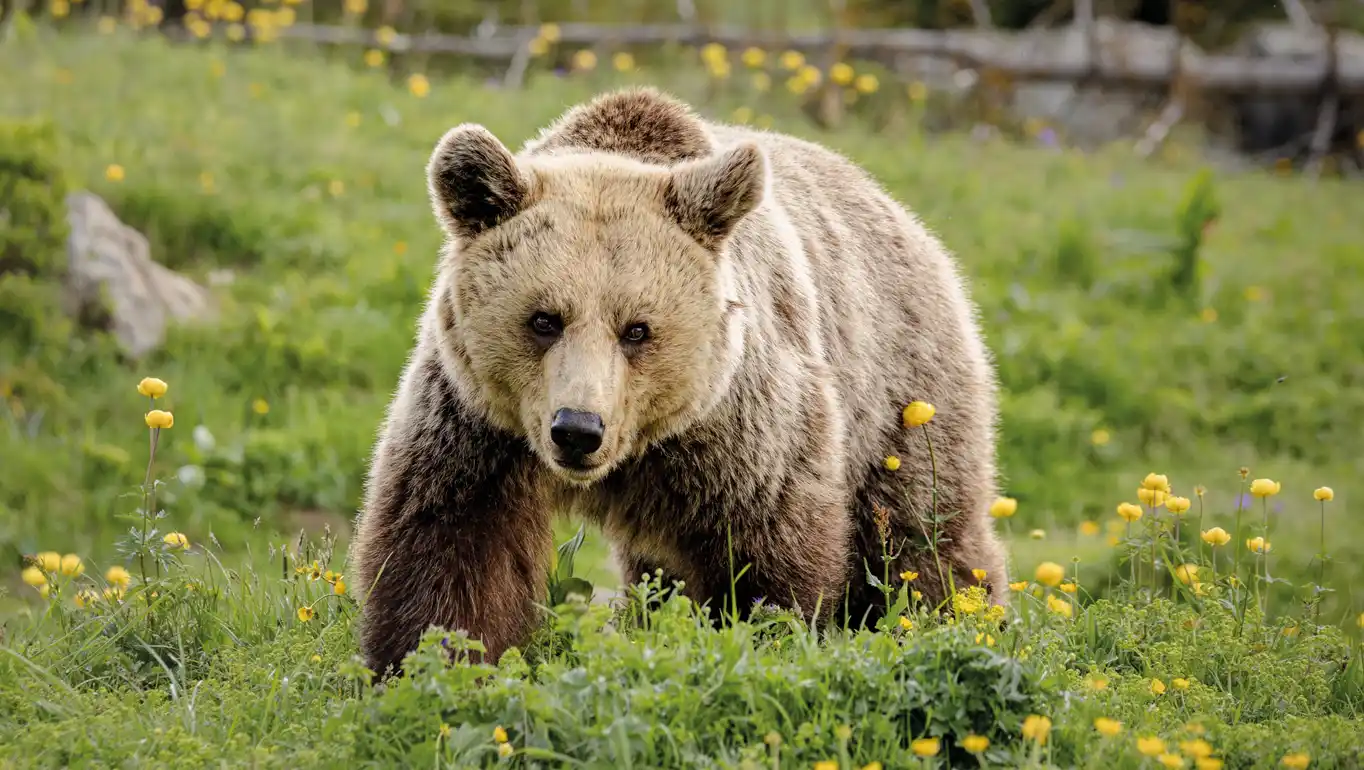In a world facing complex humanitarian and environmental challenges, international collaboration is more important than ever. While animal welfare is often overlooked in global policy agendas, its impact extends far beyond animals. It is deeply connected to public healthand the environment.
How do you fly an elephant from a derelict zoo in Karachi, Pakistan, to a species-appropriate sanctuary in Cambodia? With global collaboration. When FOUR PAWS took on the mission of rescuing Kaavan, ‘the loneliest elephant in the world’ in 2020, it needed more than just animal welfare expertise, it required an international network of dedicated partners. For over three decades, Kaavan, Pakistan’s only Asian elephant, had been confined to an inadequate enclosure. Thanks to relentless campaigning across continents, he was finally loaded onto a cargo plane and transported to his new forever home.
But for FOUR PAWS, international cooperation is not only essential for rescuing animals during crises, in conflict zones, or following natural disasters. It ensures that animal welfare remains a central priority on the global agenda, highlighting the connection between human, environmental, and animal well-being.
Animal welfare worldwide
FOUR PAWS was founded in 1988 in Vienna by a small group of animal welfare activists, led by Heli Dungler who campaigned to ban fur farms in Austria. Their efforts laid the foundation for a global organization dedicated to protecting animals under human influence by exposing cruelty, rescuing those in need, and advocating for lasting change.
Today, FOUR PAWS operates offices in 15 countries and provides species-appropriate homes for rescued animals in 11 countries. It offers both rapid assistance and long-term solutions, working to drive systemic change in politics, society, and the economy through projects, campaigns, and education.
Rescuing animals and reforming laws
The organization is advocating for the humane treatment of stray dogs and cats, as well as better welfare standards for companion animals. In Europe, the organization has been actively investigating the illegal puppy trade, raising awareness about the risks of buying pets online, and lobbying for stricter regulations on animal sales.
The welfare of wild animals remains a key focus. Since 1998, FOUR PAWS has worked tirelessly to end the inappropriate keeping of brown bears in Europe. Through a strategy centred on legislative change, rescue operations, and long-term care in sanctuaries, the organization collaborates with authorities to develop legal frameworks and welfare standards to ensure the appropriate treatment of bears. Over 130 bears have been rescued so far across Europe, with some notable successes such as the end of dancing bear exploitation in Bulgaria and Serbia and restaurant bear captivity in Kosovo and Albania. Over time, FOUR PAWS has expanded its efforts beyond Europe, rescuing bears in Vietnam and extending its protection to other species, such as big cats, by establishing species-appropriate sanctuaries, notably in South Africa.
FOUR PAWS has also been advocating for farmed animal welfare for decades, working to improve conditions related to their breeding, keeping, transport, and slaughter. Through campaigning and lobbying, the organization pushes for systemic changes, like the reform of intensive farming practices. Today, most farmed animals are confined in husbandry systems designed solely for economic efficiency, depriving them of space to move, access to the outdoors, and the ability to express natural behaviors.
Preventing the pandemics of tomorrow, together
Covid-19 has taught us many things, and one of these hard-hitting truths is that we must improve the way that humans treat animals. As over 70% of emerging infectious diseases in humans originate in animals, the world’s leading scientists and experts argue that to prevent pandemics, we need to improve the way we treat animals and their environment.
FOUR PAWS calls on international institutions and national governments to act and adopt the One Health approach, which emphasizes the link between animal welfare, human wellbeing, and the physical and social environment. One Health is a collaborative approach through which different sectors work together to address complex health challenges like pandemics.
The political response to preventing future pandemics must focus on supporting communities that come into daily contact with animals to protect themselves, the animals and their environment while securing their livelihoods. To minimize risks at the earliest possible stages, before humans and animals suffer, FOUR PAWS argues that national plans must improve animal keeping conditions, strengthen farming and agricultural systems and ban practices that increase the risk of zoonotic disease emergence and spread, like the commercial wildlife trade, the dog and cat meat trade, and fur farming.
Animal welfare is not an isolated issue. By recognizing its interconnectedness with environmental, social, and public health challenges, we can drive meaningful change. Through collaboration across sectors, we can ensure that animals receive the protection they deserve, ultimately benefiting both people and the planet.
This article provides an overview of FOUR PAWS’ history and initiatives. For more, please visit our website.



